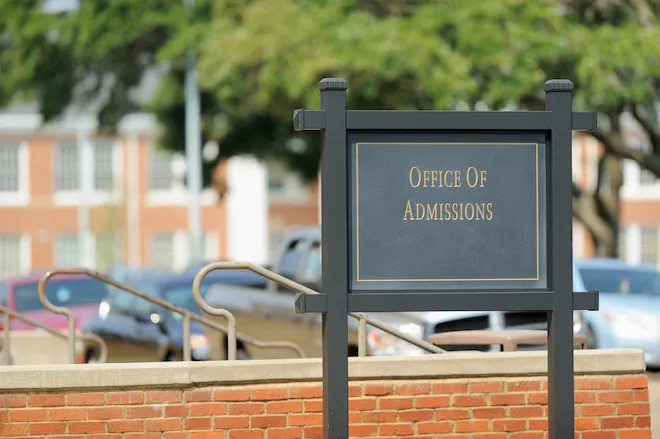
This State Could Be the First to Ban Legacy Admissions
Connecticut could become the first state in the nation to ban the practice of legacy admissions.
A new bill likely to be introduced during the nearing legislative session has the support of key lawmakers from both parties, CT Insider reports.
“This landscape is shifting very quickly on legacy admissions,” says Sen. Derek Slap, D-West Hartford, who chairs the legislature’s Higher Education Committee. “I really don’t think there’s a good defense of it.”
Senate Minority Leader Kevin Kelly, representing Stratford, said that while he wouldn’t commit to banning legacy admissions until hearing from schools in question, he is open to the conversation.
“This is really about fairness,” Kelly says. “There’s certainly something to look at here, to at least have the conversation on whether or not that practice is holding back a lot of good students that happen to be from poor, working- and middle-class families who haven’t had the privilege of an ancestor who has gone to one of these private institutions.”
2022 EFFORT TO BAN LEGACY ADMISSIONS
This isn’t the first time Connecticut has tried to ban the practice of legacy admissions. Back in 2022, a proposal to ban the practice came in front of Connecticut’s legislature but failed to pass after a number of the state’s colleges and universities called the bill intrusive and unnecessary.
But this year’s effort may look different. For one, legacy admissions has come under increased scrutiny in recent years.
“It’s related to race very heavily, because the vast majority of legacies are white,” Julie Park, an associate professor of education at the University of Maryland, College Park, tells US News. “So it’s being talked about as a sort of affirmative action for the rich, or affirmative action for the white wealthy students – because there are legacies who are also students of color, but the number is just much smaller.”
Last summer, Wesleyan University announced that it would end its practice of legacy admissions—a move that Wesleyan President Michael Roth says was the “right thing to do.”
“If we’re doing all these other things to increase diversity, especially in light of the court decision, and we still said, ‘Yes, we can give alumni a preference,’ that would make us hypocrites,” he says. “If I thought I couldn’t raise money because of this, I would have to find a different line of work, because this is the right thing to do. But I believe I can raise a lot of money from Wesleyan alums who are genuinely pleased to support an institution that’s aligned with their values.”
Sources: CT Insider, US News, Inside Higher Ed
Next Page: Get the most from your college visit











Questions about this article? Email us or leave a comment below.